DIY All Purpose Cleaners: Budget and Eco Friendly Cleaning Solutions
Are you tired of spending a fortune on commercial cleaning products that are laden with chemicals? It’s time to switch to the world of DIY all-purpose cleaners! Not only are these solutions effective, but they’re also kind to your wallet and the environment. In this blog post, we’ll walk you through some fantastic DIY all-purpose cleaner recipes that you can whip up using basic supplies from Dollar Tree. Say goodbye to harsh chemicals and hello to a cleaner, greener home!
This post may contain affiliate links, I earn from qualifying purchases at no extra cost to you. Click here for my disclosure policy
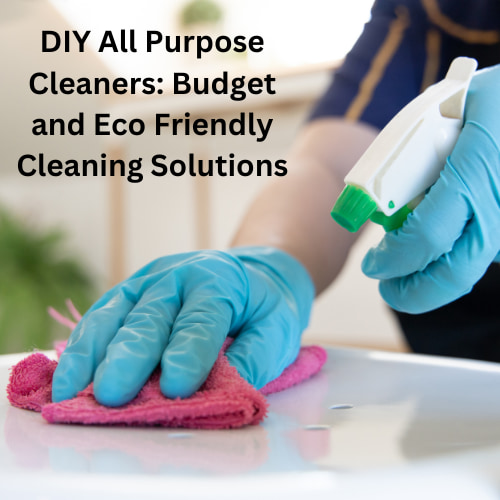
DIY All Purpose Cleaners Video
DIY All Purpose Cleaners
If your looking for answers to the following questions, this post is for you!
- How do you make non toxic multi purpose cleaner?
- What is the recipe for general purpose cleaner?
- What is the best DIY all-purpose cleaner recipe?
- What can you mix the ingredients to make a homemade all purpose household cleaner?
- How do you make your own all-purpose cleaner?
- What is the best recipe for all purpose cleaner?
- What is the best homemade all-purpose cleaner recipe?
- What is a 2 ingredient all-purpose cleaner?
- Which 2 ingredients make great DIY household cleaner?
Now let’s get started with our homemade cleaners!
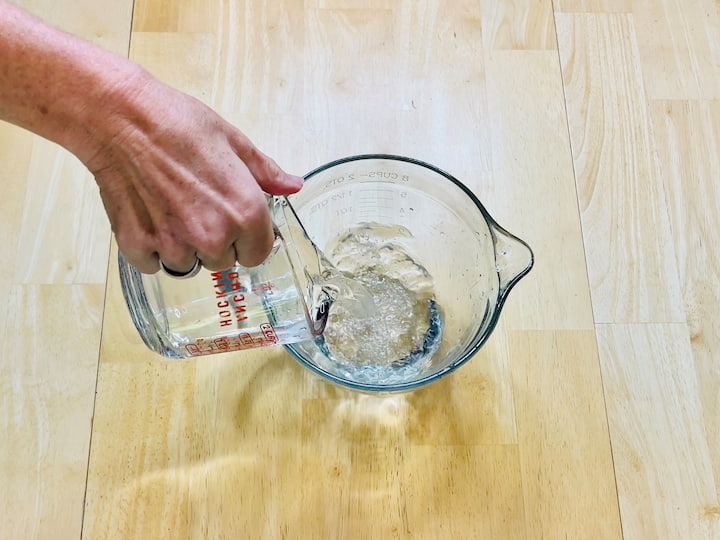
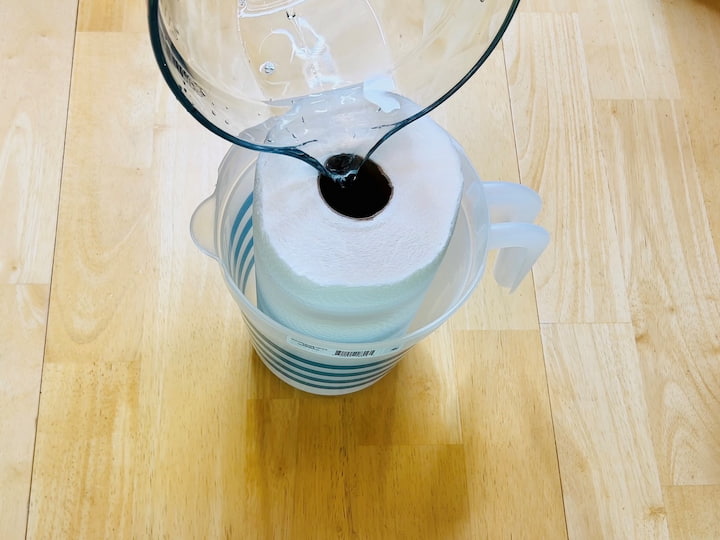
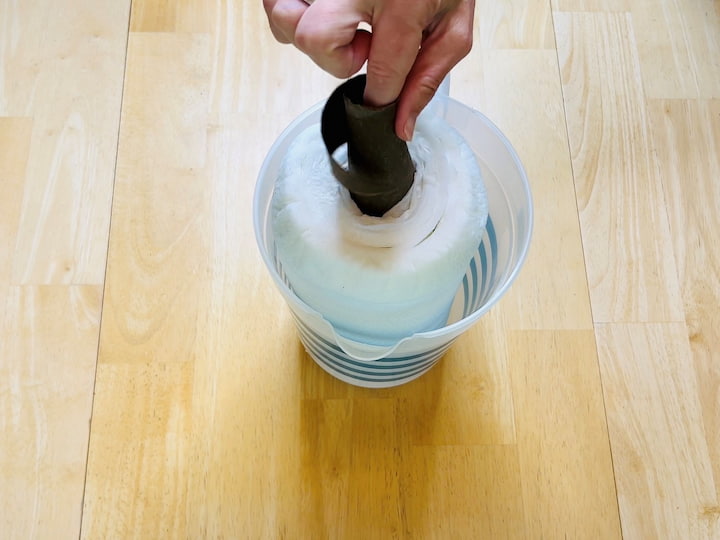
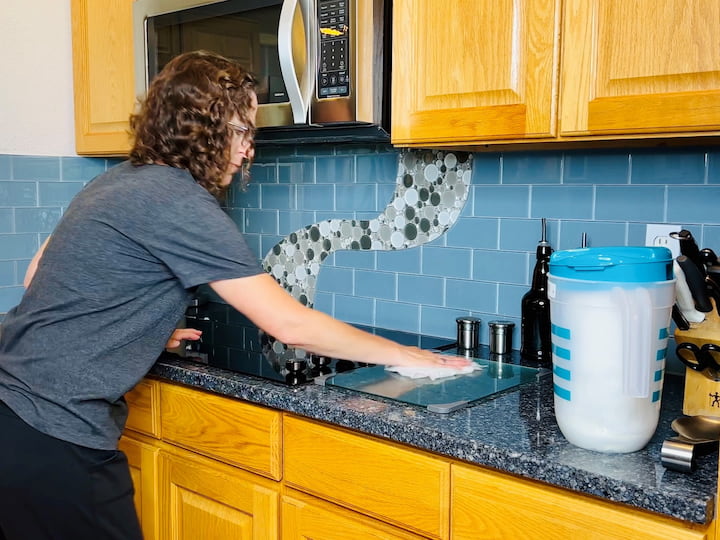
Vinegar-Based Disposable Wipes:
Start by gathering your supplies from Dollar Tree. Here’s what you’ll need:
- One and three-quarter cups of water
- One-quarter cup of white vinegar
- Regular pitcher
- Paper towels
- Cardboard paper tube
Here’s how to make these convenient, natural disposable wipes:
- Mix the water and vinegar in a big bowl. Avoid adding dish soap to this mixture, as it can cancel out the cleaning properties.
- Open a regular pitcher and place paper towels in the center.
- Pour the water-vinegar mixture into the center of the paper towels.
- Allow the water to soak into the paper towels, and then carefully remove the cardboard paper tube from the center.
- Pull the paper towels from the center, keeping the lid on to retain moisture.
- Now you have natural disposable wipes that can be used throughout your home for cleaning various surfaces, except for porous rock like granite, marble, etc which vinegar is not suitable for. Use it to wipe off your counter tops, backsplashes, bathroom and kitchen sink, and more.
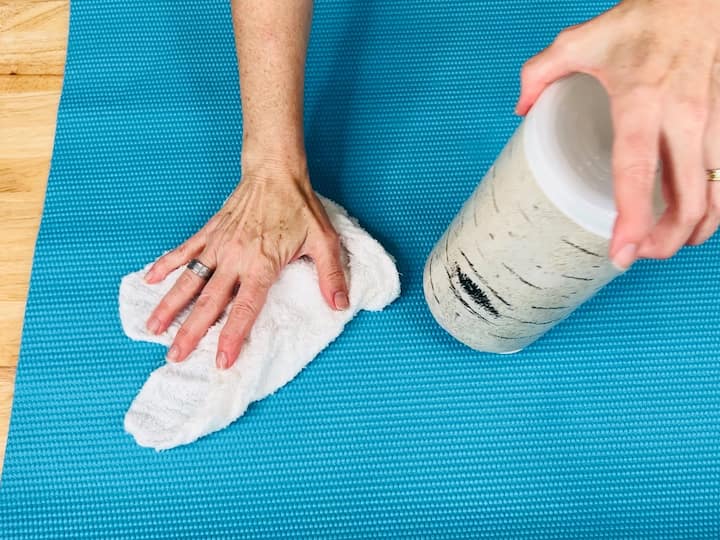
Castile Soap Reusable Wipes
You can use the vinegar recipe from above and place it a container of washcloths to reuse again and again, or you can make this other DIY all purpose cleaner castile soap recipe:
- One tablespoon of liquid Castile soap
- Water
- Washcloths
- Container
Create your Castile soap all-purpose cleaner in a few easy steps:
- Place washcloths in a container and pour the Castile soap mixture over them.
- You now have reusable wipes that are perfect for scrubbing surfaces like countertops, sinks, and more.
- Launder the washcloths and use them again and again.
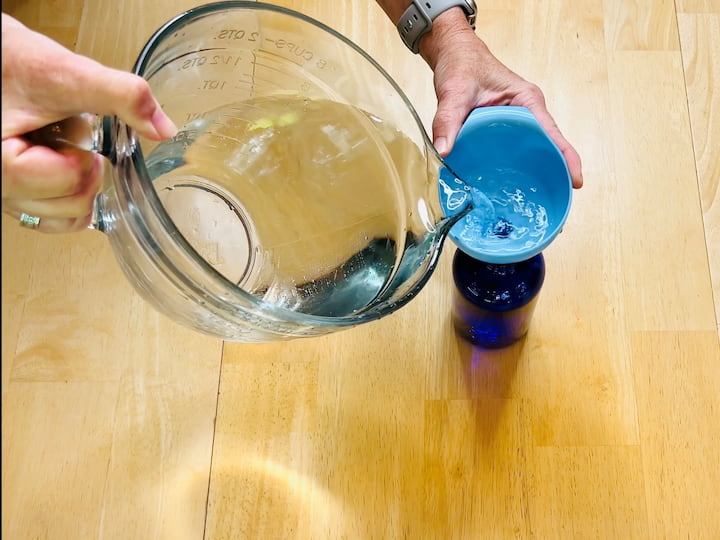
Vinegar, Rubbing Alcohol, and Water Spray:
For a versatile and effective all-purpose spray, ingredients you’ll need:
- One cup of water
- One cup of vinegar
- One cup of rubbing alcohol
- Spray bottle
- Funnel
Follow these steps to create your all-purpose spray:
- Mix the water, vinegar, and rubbing alcohol in a bowl. Avoid adding dish soap.
- Use a funnel to pour the mixture into a spray bottle.
- This spray is perfect for spot cleaning and can be used on a variety of surfaces. Just avoid using it on porous materials like granite.
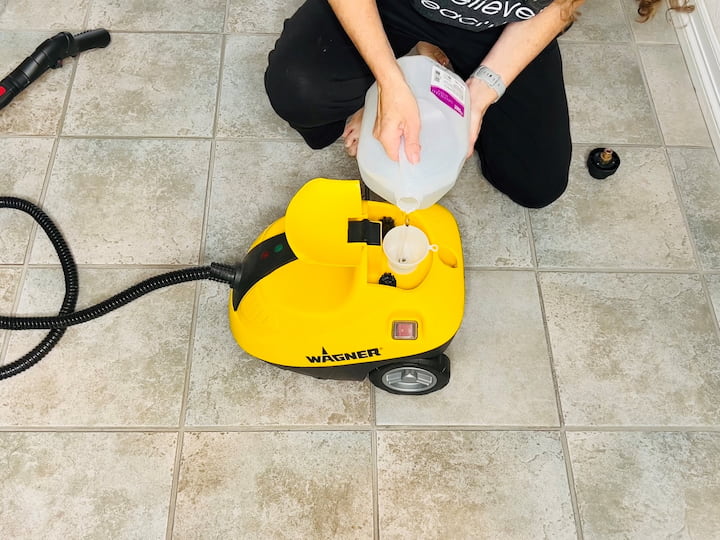
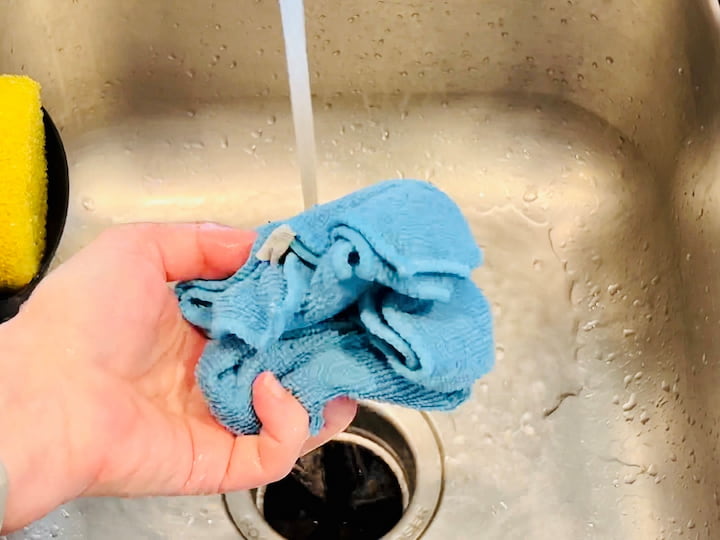
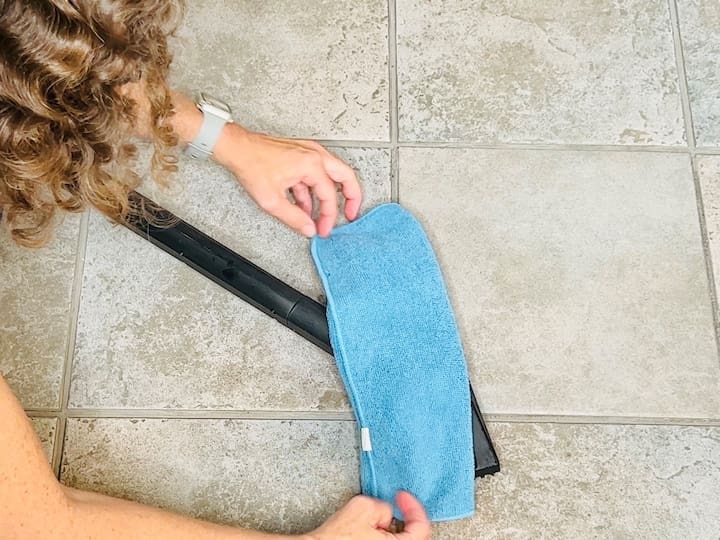
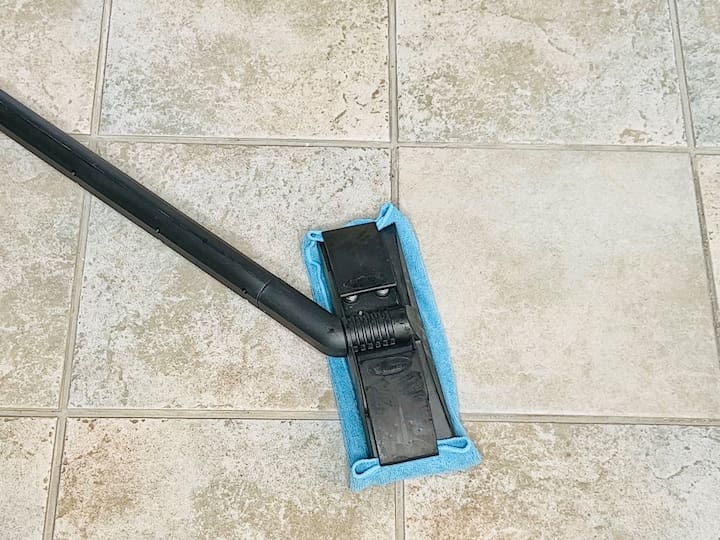
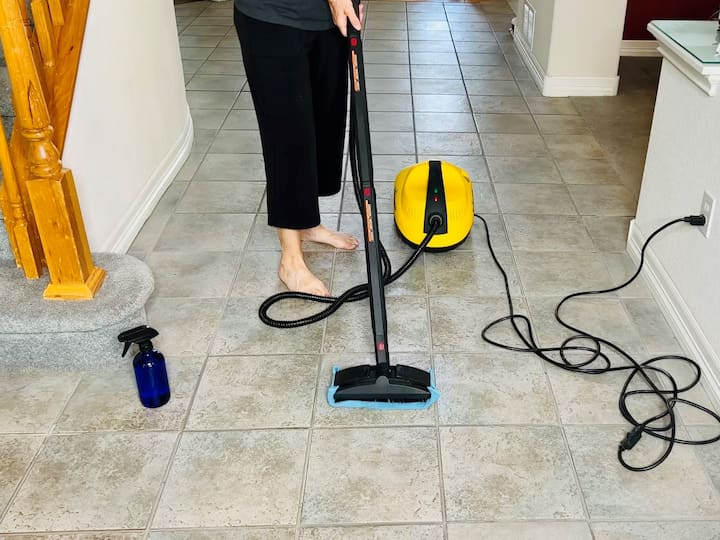
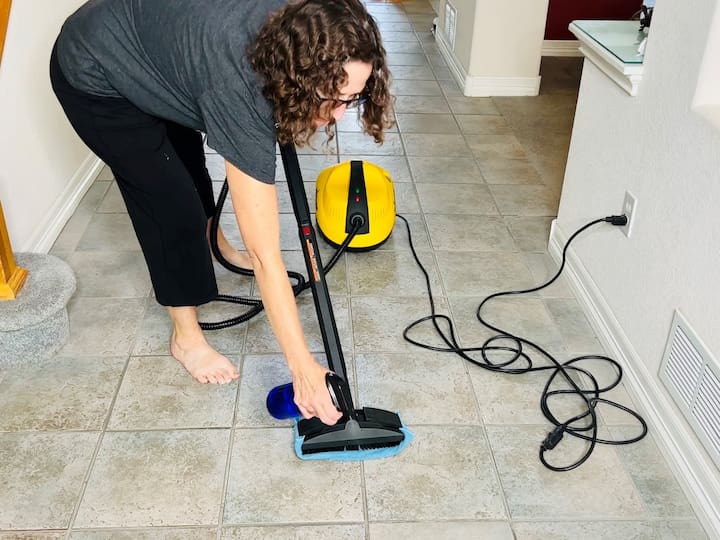
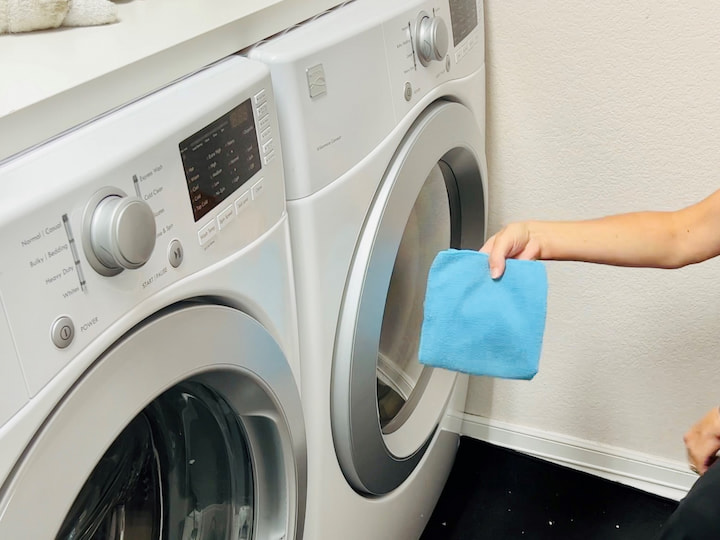
Steam Mop Pads and Spot Cleaner:
Tired of disposable mop pads? Make your own reusable ones with these supplies:
- Distilled water
- Steam mop
- Microfiber cloth
Here’s how to create your own steam mop pads and spot cleaner:
- Fill your steam mop with distilled water to prevent mineral deposits.
- Wet a microfiber cloth and wring it out well. Fold it up in the shape of your mop and attach it to the bottom of your steam mop using clips on the mop (or stuff it in the clips).
- Turn on the steam mop and let it warm up. You now have your own reusable steam mop pad.
- For spot cleaning, use the spray mixture from the second recipe. Spray on stubborn spots and continue cleaning.
- Wash the microfiber pad and reuse it again and again.
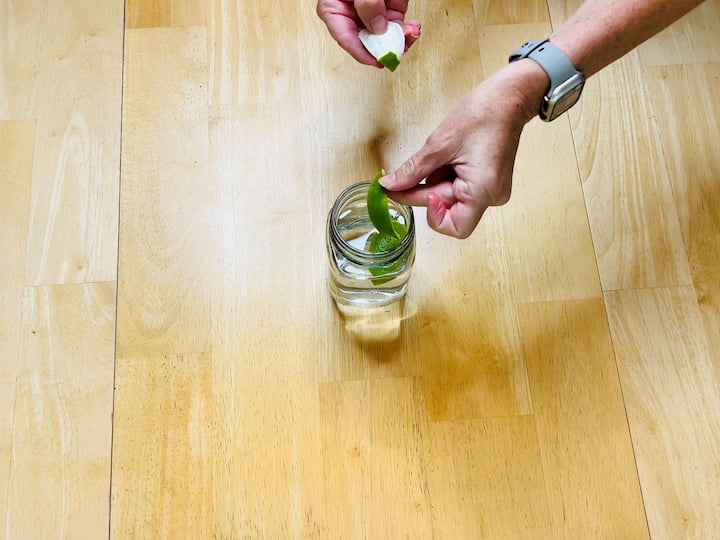
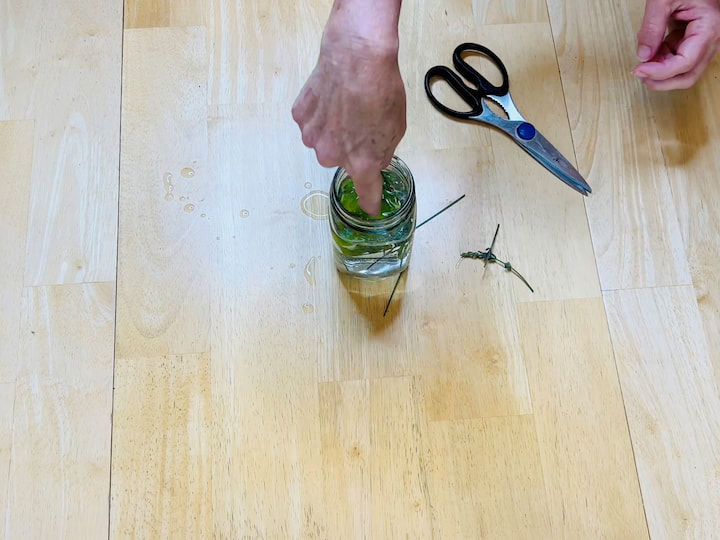
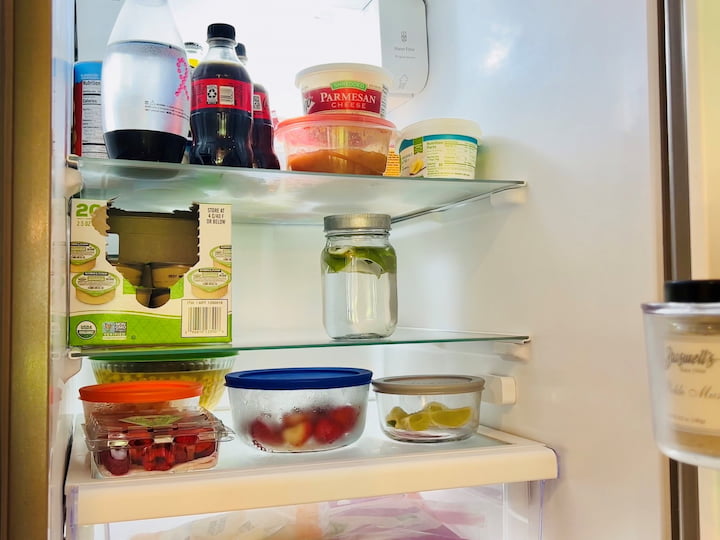
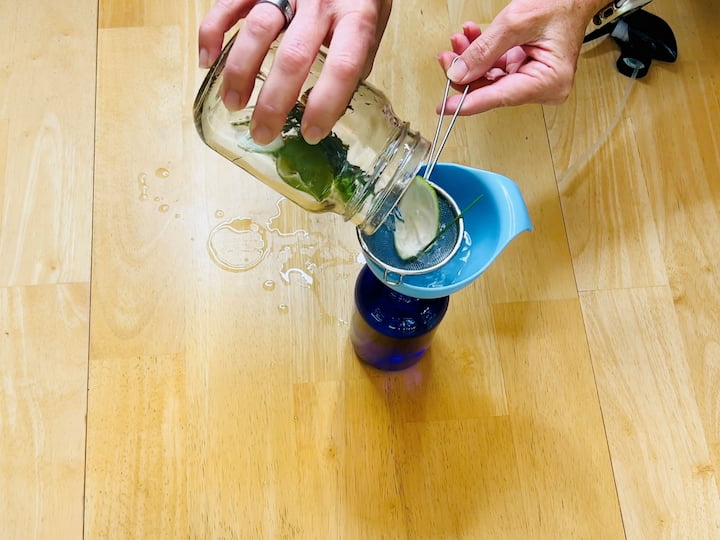
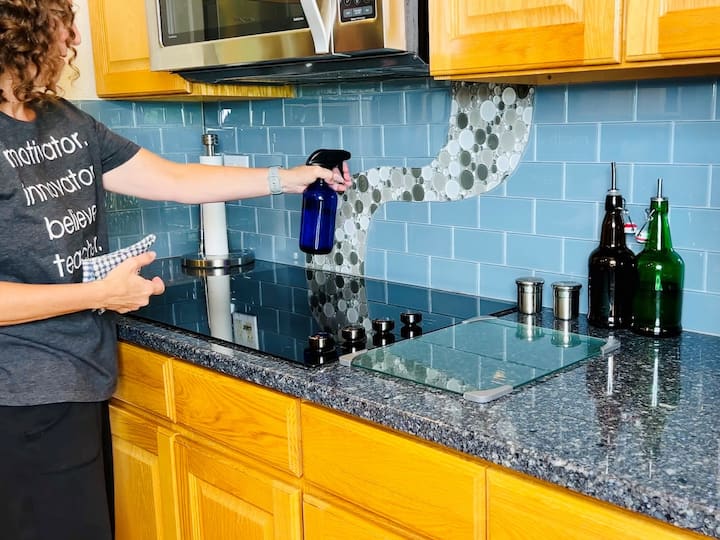
Citrus and Herb Infused Cleaner:
For those who dislike the smell of vinegar, here’s a refreshing alternative:
- Vinegar
- Citrus peels (e.g., lime, lemon, orange)
- Fresh herbs (e.g., lavender)
Follow these steps to create a delightful citrus and herb infused cleaner:
- Fill a mason jar with vinegar and add citrus peels and fresh herbs.
- Seal the jar and let it sit in the refrigerator for a week.
- After a week, strain the mixture and pour it into a spray bottle using a funnel.
- Now you have a naturally scented all-purpose cleaner that’s perfect for various surfaces, except porous and soft stones like granite.
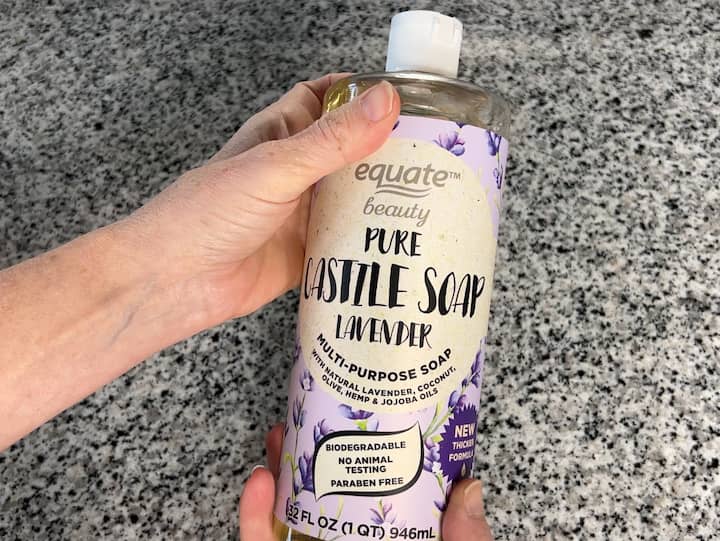
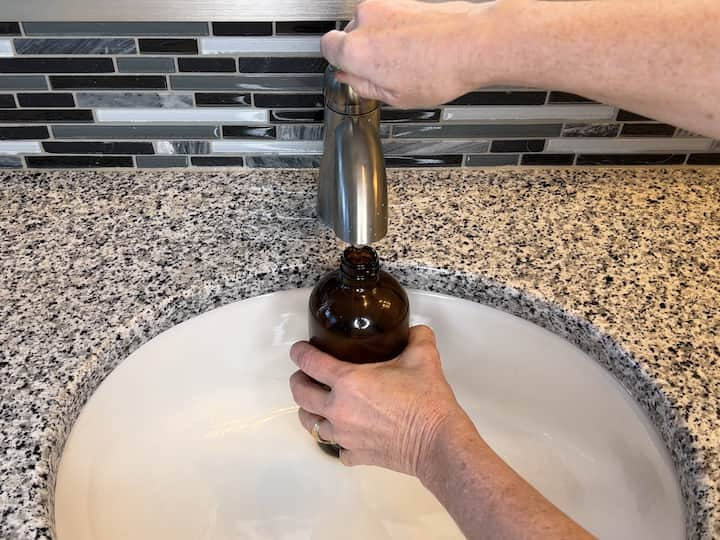
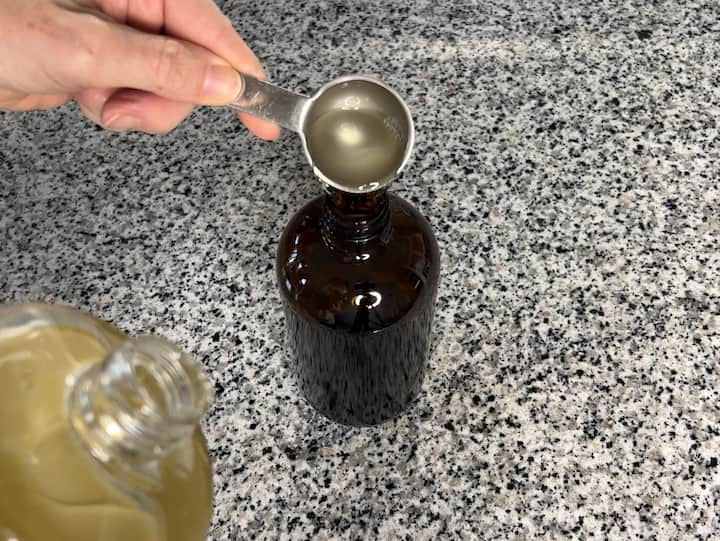
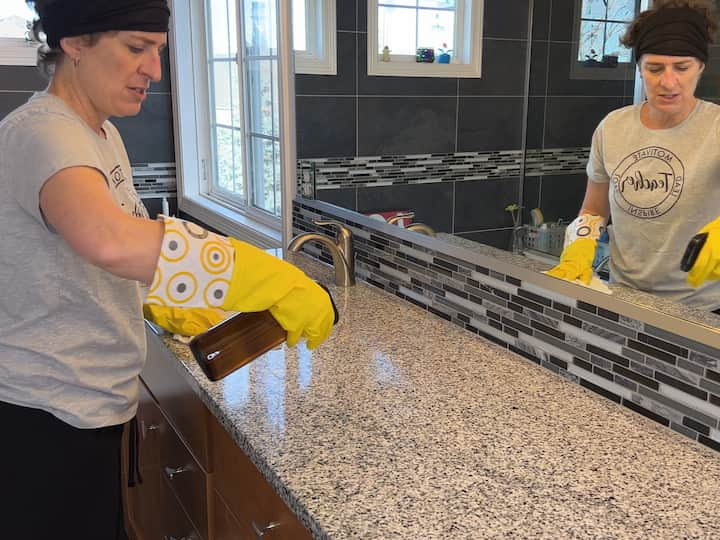
Castile Soap All-Purpose Cleaner:
If you prefer a soap-based cleaner, here’s a simple recipe:
- One tablespoon of liquid Castile soap
- Water
- Spray bottle
Create your Castile soap all-purpose cleaner in a few easy steps:
- Combine one tablespoon of Castile soap with water in a spray bottle.
- Shake well, and your gentle yet effective all-purpose cleaner is ready to use on a wide range of surfaces, including granite.
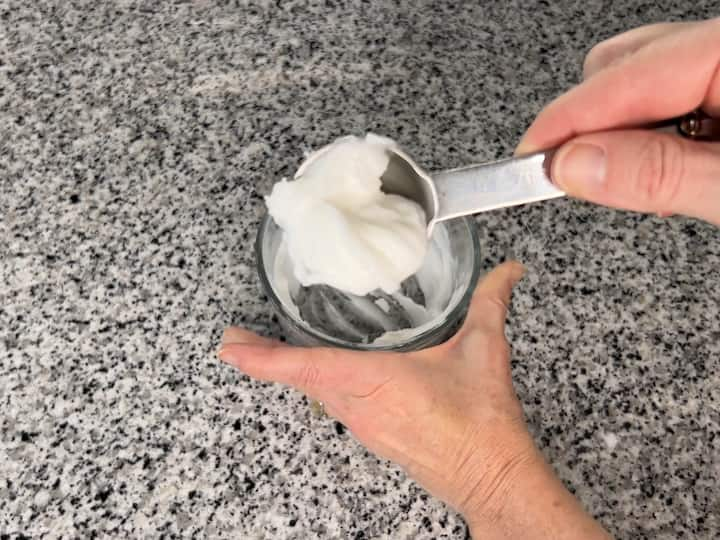
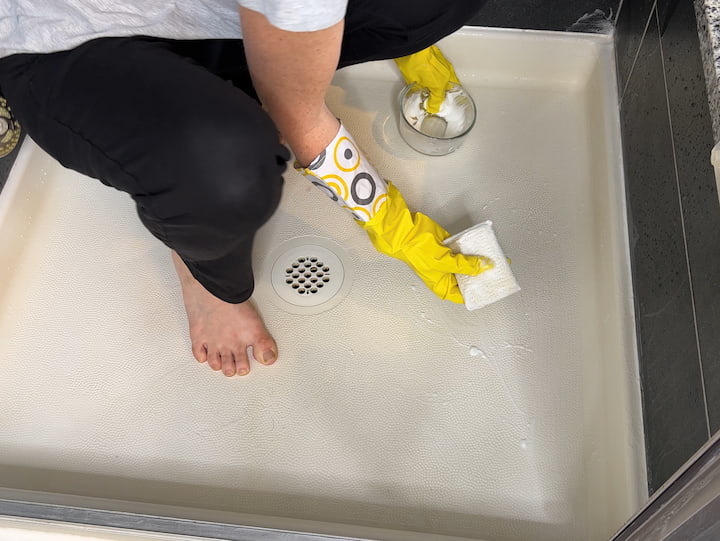
Baking Soda and Castile Soap Cleanser:
For a mildly abrasive natural cleanser (like a soft scrub), you’ll need:
- Baking soda
- One teaspoon of Castile soap
Follow these steps to make your baking soda and Castile soap cleanser:
- Mix baking soda and one teaspoon of Castile soap in a dish to create a paste.
- This is a mildly abrasive cleaner and acts like a soft scrub. It’s great for your shower base, tub, and sinks.
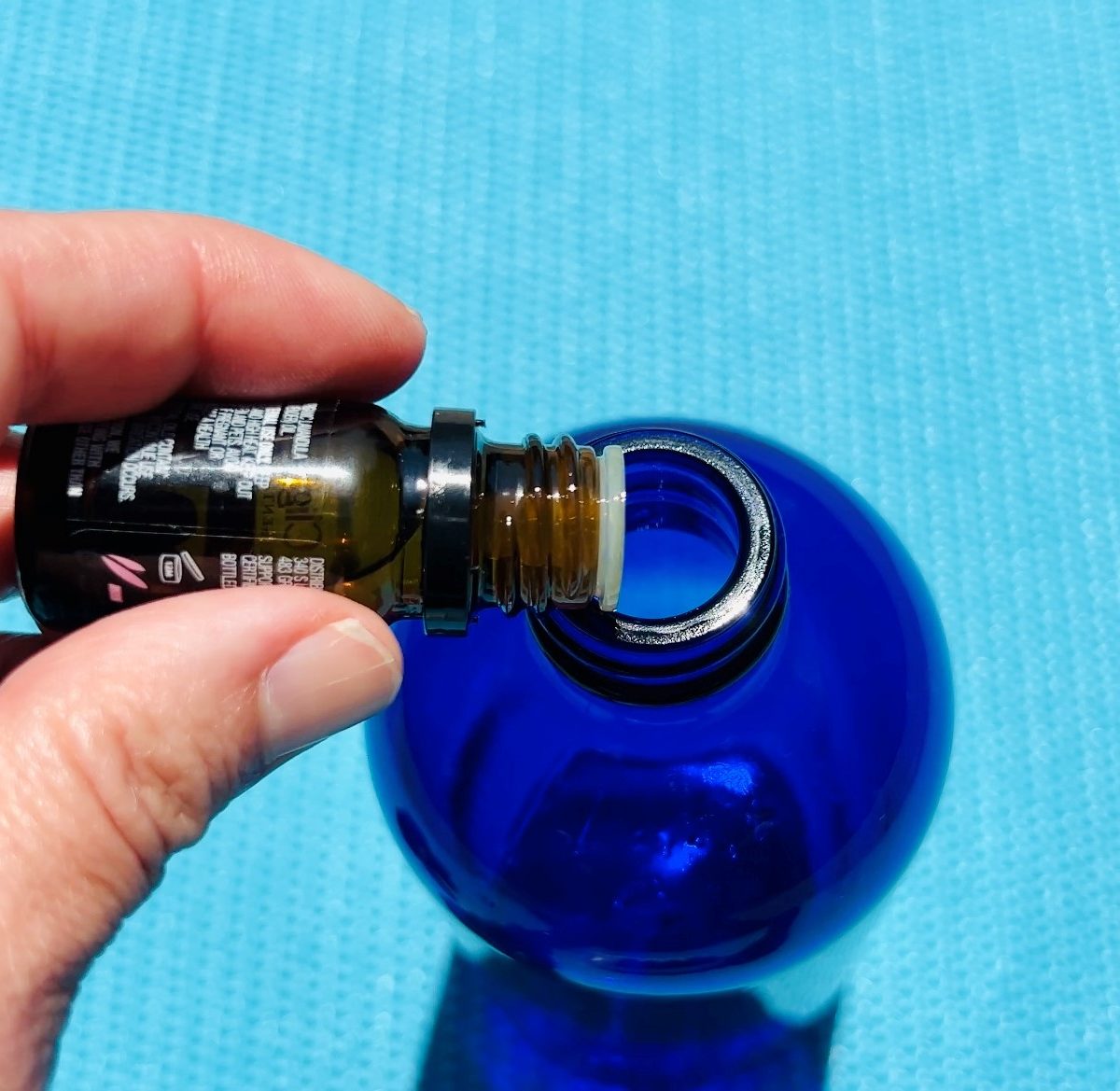
Essential Oil All-Purpose Cleaner:
Ingredients:
- Water
- White vinegar or rubbing alcohol
- Essential oils (e.g., tea tree, lavender, lemon)
Instructions:
- Mix equal parts water and white vinegar or rubbing alcohol in a spray bottle.
- Add a few drops of your chosen essential oil for a pleasant scent and added cleaning power.
- Shake well before each use.
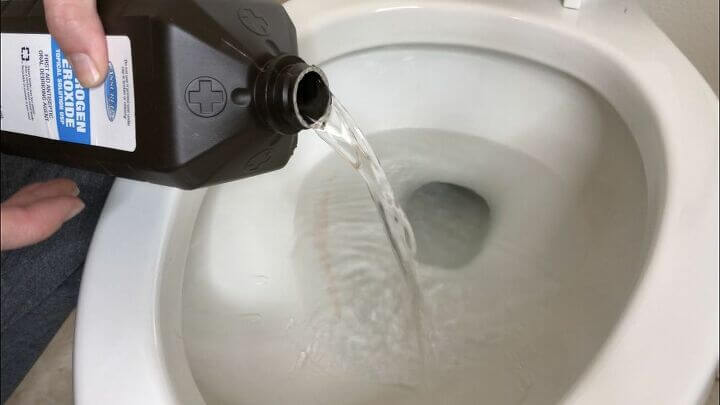
Hydrogen Peroxide and Water Cleaner:
This one is great for cleaning toilet bowls and doubles as a toilet bowl cleaner.
Ingredients:
- Hydrogen peroxide (3% solution)
- Water
Instructions:
- Mix equal parts hydrogen peroxide and water in a spray bottle.
- This solution is effective for disinfecting surfaces, such as kitchen counters and bathroom tiles.
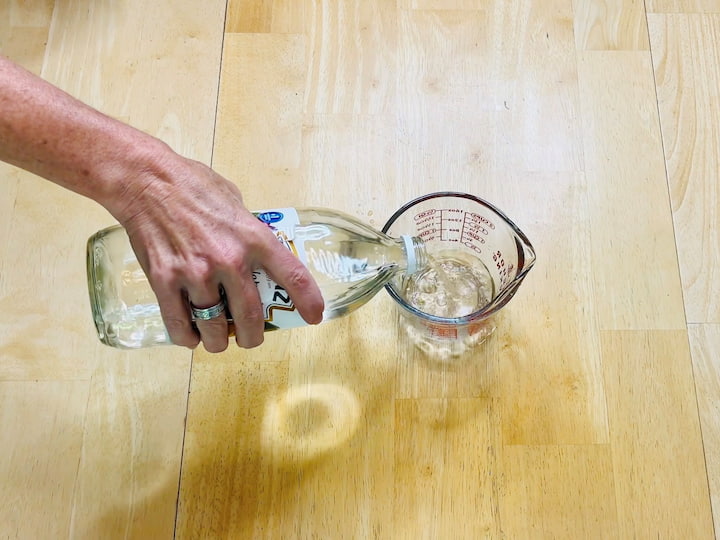
Basic Vinegar and Water Cleaner:
Ingredients:
- White vinegar
- Water
Instructions:
- Mix equal parts of white vinegar and water in a spray bottle.
- Shake well before each use.
- This solution is great for cleaning glass, countertops, bathroom surfaces, and more.
Shop any of these stores and I receive a small commission at no cost to you.
 WHOLENATURALS Pure Castile ...Shop on Amazon
WHOLENATURALS Pure Castile ...Shop on Amazon Heinz Cleaning Vinegar, 128...Shop on Amazon
Heinz Cleaning Vinegar, 128...Shop on Amazon Amazon Basics Microfiber Cl...Shop on Amazon
Amazon Basics Microfiber Cl...Shop on Amazon Empty Amber Glass Spray Bot...Shop on Amazon
Empty Amber Glass Spray Bot...Shop on Amazon Wagner Spraytech C900054 90...Shop on Amazon
Wagner Spraytech C900054 90...Shop on Amazon
DIY All Purpose Cleaners Video
Related Posts:
- All Natural, Non-Toxic DIY Cleaners to Use Everywhere in Your Home (more cleaning recipes)
- Easy and Amazing Homemade Cleaner for Stainless Steel Appliances with Video
- Amazing DIY Laundry Hacks That Will Save You Money (DIY laundry detergent, bleach, and more)
- How To Remove Stains: You won’t believe how easy it is! (get rid of hard water and more)
Is vinegar and dish soap a good cleaner?
The short answer is no when it comes to mixing them together. Vinegar is acidic, and dish soap is a base. Together they neutralize each other and cancel out all of the cleaning properties.
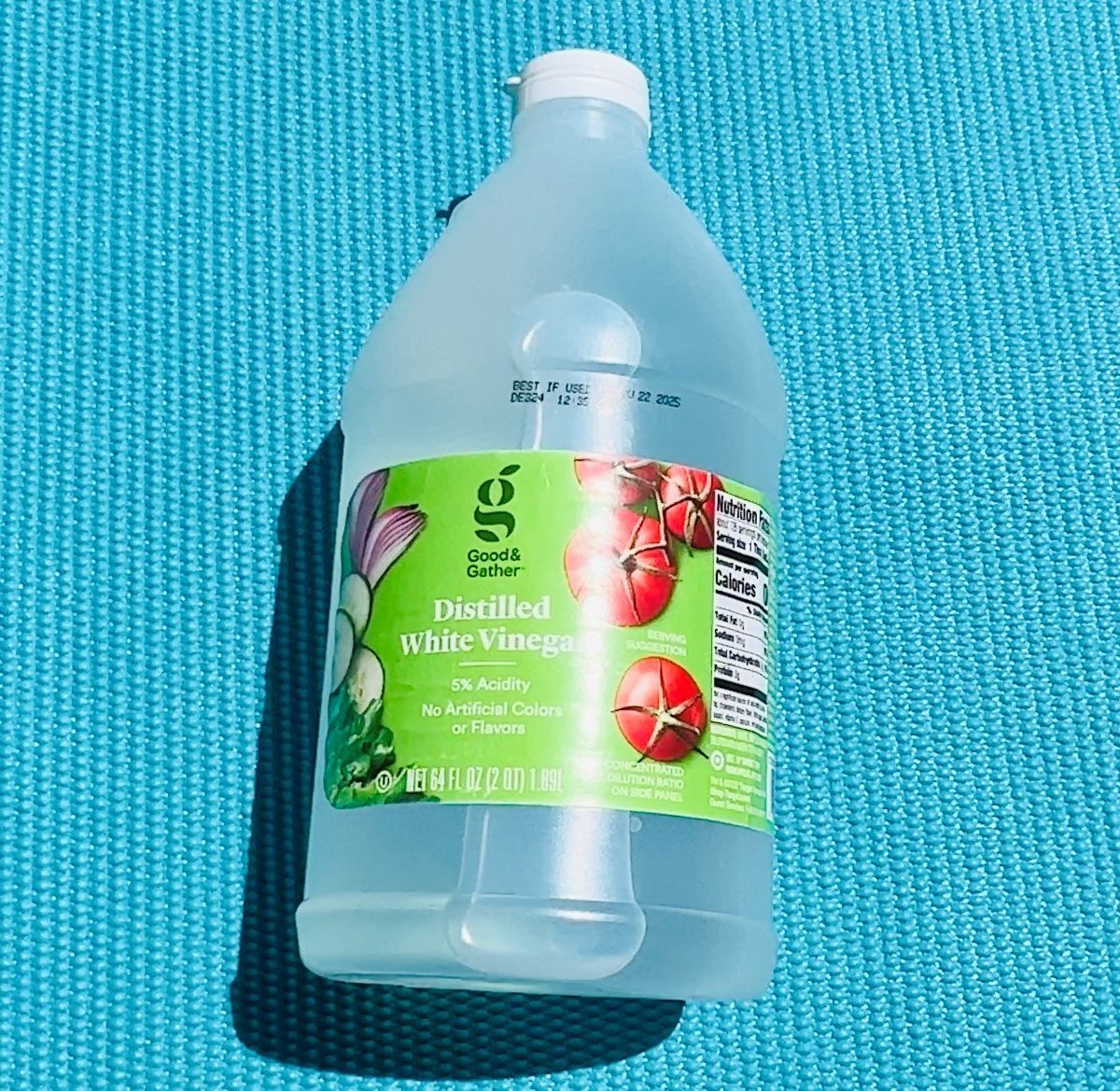
What can you use cleaning vinegar for?
Vinegar is a versatile and natural cleaning agent that can be used effectively for a variety of cleaning tasks around the home. Here are some ways you can use vinegar for cleaning:
- Disinfecting Surfaces: Vinegar has natural antibacterial properties and can be used to disinfect and sanitize surfaces. It’s particularly useful for cleaning kitchen countertops, bathroom sinks, and other areas where germs may accumulate.
- Removing Stains and Odors: Vinegar can help remove stains from fabrics, carpets, and upholstery. It’s also effective at neutralizing odors, such as those from pet accidents or cooking.
- Glass and Mirrors: Diluted vinegar is excellent for cleaning glass and mirrors. It leaves a streak-free shine and helps remove water spots and smudges.
- Grease and Grime: Vinegar can cut through grease and grime on stovetops, kitchen appliances, and other surfaces. It’s particularly useful in the kitchen.
- Microwave Cleaning: Fill a microwave-safe bowl with equal parts water and vinegar. Heat the mixture until it boils, then let it sit for a few minutes. The steam will help loosen food debris, making it easier to wipe clean.
- Dishwasher Maintenance: Running an empty dishwasher with a cup of vinegar can help remove mineral deposits and keep the dishwasher clean.
- Cleaning Coffee Makers: Running a mixture of vinegar and water through a coffee maker can help descale it and remove built-up mineral deposits.
- Cleaning Fruits and Vegetables: A mixture of water and vinegar can be used to clean fruits and vegetables, helping to remove pesticides and bacteria.
- Deodorizing: Place a bowl of vinegar in a room to help absorb and neutralize odors.
- Cleaning Bathroom Fixtures: Vinegar can help remove water stains and mineral deposits from faucets, showerheads, and other bathroom fixtures.
- Mopping Floors: Add a cup of vinegar to a bucket of water to clean and disinfect floors.
- Laundry: Vinegar can be used as a fabric softener in the laundry, and it can also help remove odors from clothes.
- Removing Mildew: Vinegar is effective at removing mildew and mold from surfaces in bathrooms and other damp areas.
Remember that while vinegar is a powerful cleaning agent, it may not be suitable for all surfaces. It’s important to test vinegar in an inconspicuous area before using it on a larger surface, especially on materials like marble, granite, and natural stone that can be damaged by acidic substances.
What should not be cleaned with vinegar?
While vinegar is a versatile and effective natural cleaner, there are certain surfaces and items that you should avoid cleaning with vinegar due to its acidic nature. Vinegar can potentially cause damage, discoloration, or other negative effects on these materials. Here are some things you should not clean with vinegar:
- Natural Stone Surfaces: Vinegar can etch and damage natural stone surfaces such as marble, granite, limestone, and travertine. The acidity of vinegar can dull the finish and create permanent marks.
- Egg Spills or Stains: Vinegar can cause proteins in egg spills or stains to coagulate, making them harder to clean and potentially causing an unpleasant smell.
- Hardwood Floors: While vinegar can be diluted and used sparingly on some hardwood floors, it’s generally recommended to avoid using it, as excessive use can strip the finish and damage the wood.
- Electronic Screens: Avoid using vinegar on screens of electronic devices like smartphones, tablets, computer monitors, and TVs, as the acid could damage the protective coatings.
- Iron or Aluminum: Vinegar can cause corrosion on iron or aluminum surfaces.
- Waxed Furniture: The acid in vinegar can strip away the wax finish on furniture, leading to a dull appearance.
- Cast Iron Cookware: Using vinegar on cast iron may strip away the seasoning and cause rusting. Instead, clean cast iron with a mild soap and water, then promptly dry and re-season.
- Dishwasher and Washing Machine Rubber Seals: Over time, vinegar can deteriorate the rubber seals in dishwashers and washing machines.
- Upholstery and Fabrics: Vinegar may cause colors to fade or fabric to weaken, especially on delicate or colored fabrics.
- Some Plastics: Vinegar can potentially damage or warp certain types of plastics. It’s best to test a small, inconspicuous area before using vinegar on plastic surfaces.
- Stone or Concrete Countertops with Seams: Vinegar can weaken the adhesive used to join seams on stone or concrete countertops.
- Porous Surfaces: Avoid using vinegar on porous surfaces like unglazed tile, grout, and unsealed concrete, as it can penetrate and cause damage.
If you’re unsure whether vinegar is safe to use on a particular surface, it’s a good idea to conduct a spot test in an inconspicuous area before proceeding. In cases where vinegar is not recommended, consider using alternative cleaning solutions that are safe for the material in question.

Can you use castile soap as a cleaner?
Yes, Castile soap is an excellent and versatile option for cleaning. Castile soap is a plant-based soap that is made from vegetable oils, such as olive oil, coconut oil, or hemp oil. It is biodegradable, non-toxic, and free from synthetic additives, making it a popular choice for environmentally-conscious cleaning. Here are some reasons why Castile soap is good for cleaning:
- Gentle and Safe: Castile soap is gentle on surfaces and safe for the environment. It doesn’t contain harsh chemicals, synthetic fragrances, or dyes that can be harmful to you, your family, or the planet.
- Multi-Purpose: Castile soap can be used for a wide range of cleaning tasks, making it a versatile option. It can clean surfaces, dishes, laundry, personal care, and more.
- Effective Degreaser: Castile soap has natural degreasing properties, making it effective at cutting through grease and grime. It’s great for cleaning kitchen surfaces and appliances.
- Surface Variety: Castile soap can be used on various non-porous surfaces, such as countertops, floors, glass, tile, and more.
- Non-Residue: Unlike some conventional soaps, Castile soap doesn’t leave behind a soapy residue, which means surfaces are less likely to attract dirt and grime after cleaning.
- Mildly Antibacterial: While not a strong disinfectant, Castile soap does have some natural antibacterial properties that can help reduce germs on surfaces.
- Personal Care Uses: Castile soap is also commonly used for personal care, such as body wash, shampoo, and even as a pet shampoo.
- Environmentally Friendly: Castile soap is made from natural, renewable ingredients and is biodegradable, making it a sustainable choice for cleaning.
When using Castile soap for cleaning, it’s important to keep a few things in mind:
- Dilution: Castile soap is concentrated, so it should be diluted before use. Depending on the task, you may need to mix a small amount of Castile soap with water.
- Surface Compatibility: While Castile soap is generally safe for many surfaces, it’s always a good idea to do a patch test on an inconspicuous area before using it on a larger surface, especially on materials that might be sensitive to moisture.
- Avoid Mixing: Castile soap can react with acidic ingredients like vinegar, potentially causing a reaction that reduces its cleaning effectiveness. It’s best to avoid mixing Castile soap with acidic substances.
Overall, Castile soap is a versatile and eco-friendly option for cleaning a variety of surfaces and items in your home.
What is the best natural cleaner product for purchase?
There are several excellent natural cleaner products available that are effective, safe, and environmentally friendly. The “best” natural cleaner can vary depending on your specific cleaning needs and preferences. Here are a few popular and highly regarded natural cleaner products:
- Branch Basics Concentrate: This is a versatile, plant-based concentrate that can be diluted to create various cleaning solutions for different surfaces. It’s free from harsh chemicals and fragrances.
- Seventh Generation Multi-Purpose Cleaner: Seventh Generation offers a range of natural cleaning products, including a multi-purpose cleaner that is powered by plant-based ingredients.
- Method All-Purpose Cleaner: Method offers a variety of natural cleaning products, including all-purpose cleaners with pleasant scents derived from essential oils.
- Better Life All-Purpose Cleaner: Better Life products are known for their plant-based ingredients and biodegradable formulas. Their all-purpose cleaner is effective on a wide range of surfaces.
- Ecover Eco-Friendly All-Purpose Cleaner: Ecover’s all-purpose cleaner is made from renewable plant-based ingredients and is suitable for kitchens, bathrooms, and more.
- Puracy Natural Multi-Surface Cleaner: Puracy’s cleaner is made from plant-based ingredients and is designed to effectively clean a variety of surfaces without leaving residue.
- Dr. Bronner’s Castile Soap: Dr. Bronner’s Castile Soap is a versatile and widely loved option for cleaning. It can be diluted and used for various cleaning tasks.
- Biokleen All-Purpose Cleaner: Biokleen offers natural cleaning products that are tough on dirt and stains but gentle on the environment.
- Common Good All-Purpose Cleaner: Common Good offers a range of natural cleaning products, including an all-purpose cleaner that is refillable and eco-friendly.
- Attitude All-Purpose Cleaner: Attitude’s all-purpose cleaner is made from plant- and mineral-based ingredients and is suitable for a variety of surfaces.
When choosing a natural cleaner product, consider factors such as the specific cleaning tasks you need to tackle, any sensitivities to fragrances or ingredients, and the product’s sustainability and environmental impact. Reading product labels, user reviews, and checking for third-party certifications (such as the USDA Organic or EcoCert) can help you make an informed choice. Ultimately, the best natural cleaner product is one that aligns with your values and effectively meets your cleaning needs.
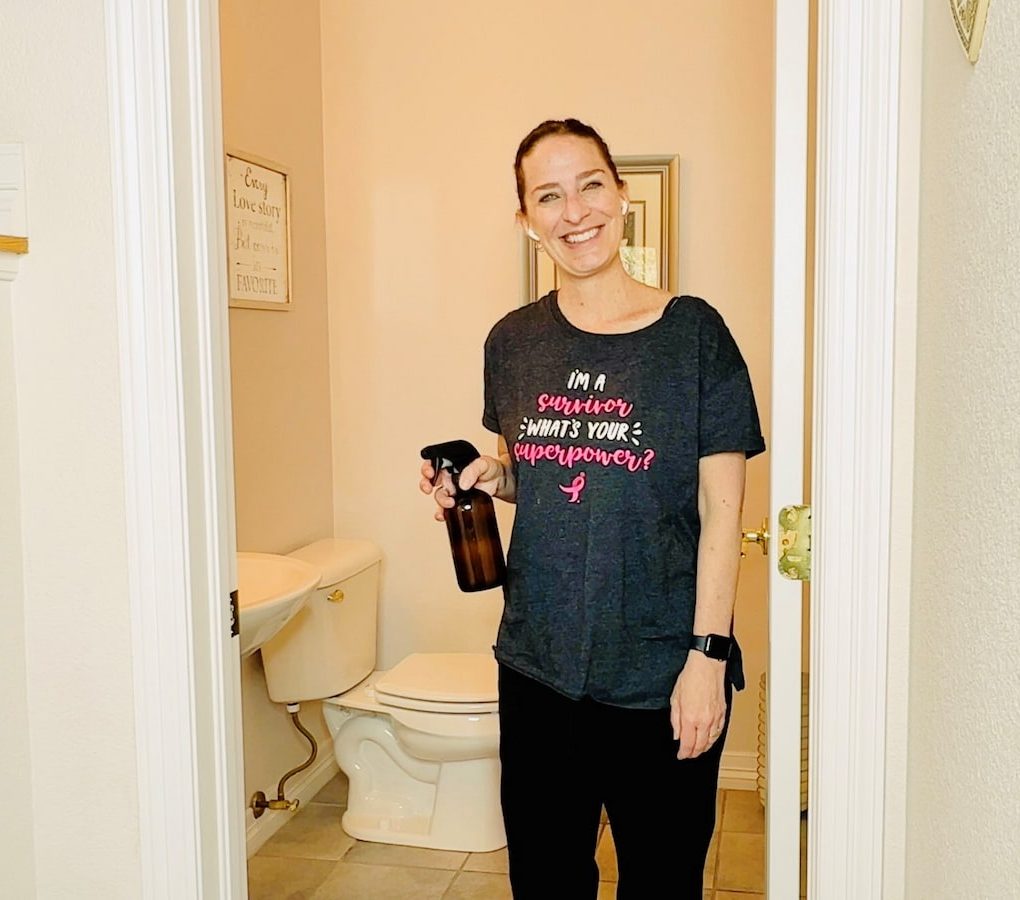
Which is better for cleaning Vinegar or Dish Soap/Castile Soap?
Both Castile soap and vinegar are effective natural cleaners, but they each have their strengths and limitations, and their effectiveness can vary depending on the cleaning task. Let’s compare the two:
Castile Soap:
- Pros:
- Mild and Gentle: Castile soap is gentle and safe for a wide range of surfaces, including sensitive ones like skin.
- Versatile: It can be used for a variety of cleaning tasks, from dishes to body wash to mopping floors.
- Effective Degreaser: Castile soap is great at cutting through grease and oily residues.
- Biodegradable: It is eco-friendly and breaks down naturally in the environment.
- Cons:
- Limited Disinfecting Properties: Castile soap has mild antibacterial properties but is not a strong disinfectant.
- Not Suitable for All Surfaces: It may not be appropriate for certain surfaces, such as natural stone.
Vinegar:
- Pros:
- Disinfecting Properties: Vinegar has natural antibacterial properties and can help disinfect surfaces.
- Odor Removal: It’s effective at neutralizing odors.
- Mineral Deposit Removal: Vinegar can dissolve mineral deposits, making it great for descaling.
- Cons:
- Strong Odor: The smell of vinegar can linger, especially if not rinsed properly.
- Not Effective on All Stains: While it’s good at breaking down some stains, it might not work as well on others.
- Surface Compatibility: Vinegar can damage certain surfaces, such as natural stone, and should be used with caution.
Choosing Between Castile Soap and Vinegar:
- General Cleaning: Both Castile soap and vinegar can be used for general cleaning tasks. If you’re looking for an all-purpose cleaner, Castile soap might be a more versatile option.
- Grease and Oily Residues: Castile soap is an effective degreaser and can handle greasy surfaces well.
- Disinfecting: If you’re looking for disinfecting properties, vinegar has an edge due to its natural antibacterial properties.
- Odor Removal: Vinegar is better at neutralizing odors, making it suitable for deodorizing tasks.
- Surface Compatibility: Consider the surfaces you’ll be cleaning. Castile soap is generally safer for a wider variety of surfaces, while vinegar should be avoided on sensitive surfaces.
- Personal Preferences: Consider your personal preferences regarding scent and the type of cleaning experience you prefer.
In many cases, you can even use both Castile soap and vinegar together in different steps of your cleaning routine. For instance, you could use Castile soap to clean surfaces and follow up with a vinegar solution to disinfect and deodorize. Ultimately, the choice between Castile soap and vinegar depends on your specific cleaning needs and priorities.
With these DIY all-purpose cleaner recipes, you can tackle dirt and grime in every corner of your home, from the kitchen to the bathroom. Say goodbye to harsh chemicals and expensive store-bought cleaners. These eco-friendly alternatives will leave your home sparkling and fresh without harming the planet. So, roll up your sleeves, grab your supplies, and start cleaning the DIY way!
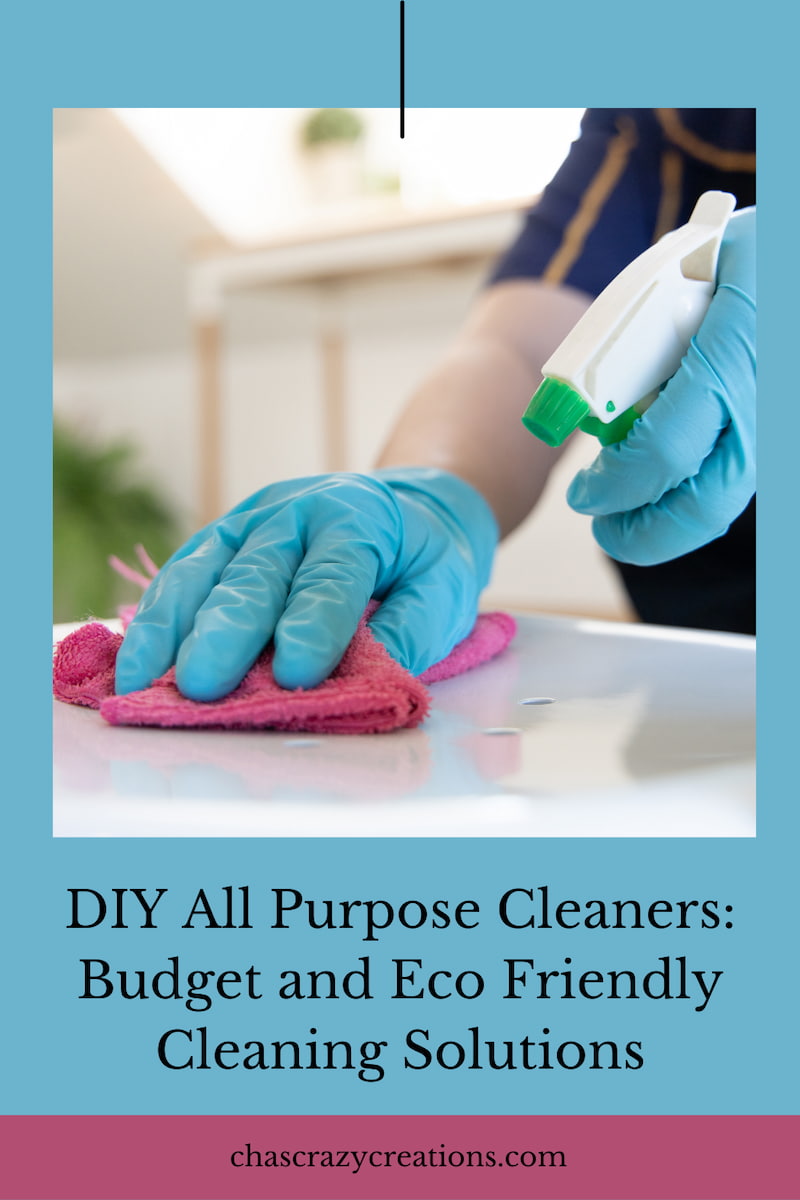
If you enjoyed these tips and want more practical home hacks, be sure to sign up for updates in the description below. And for more creative ideas and tutorials, visit my YouTube channel and blog at ChapsCrazyCreations.com. Happy cleaning, and remember to like, share, and subscribe for more inspiration!


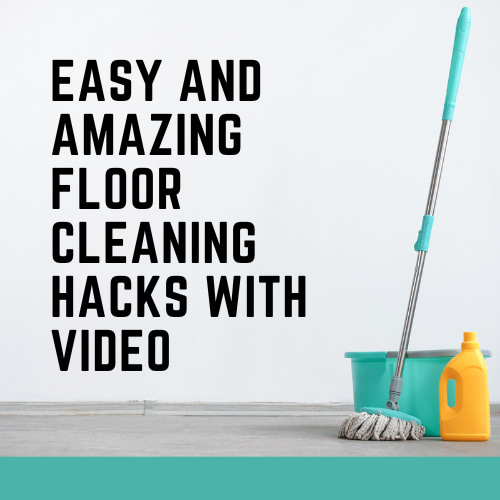
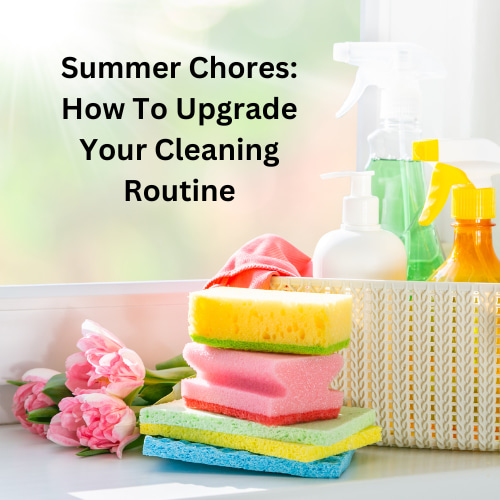

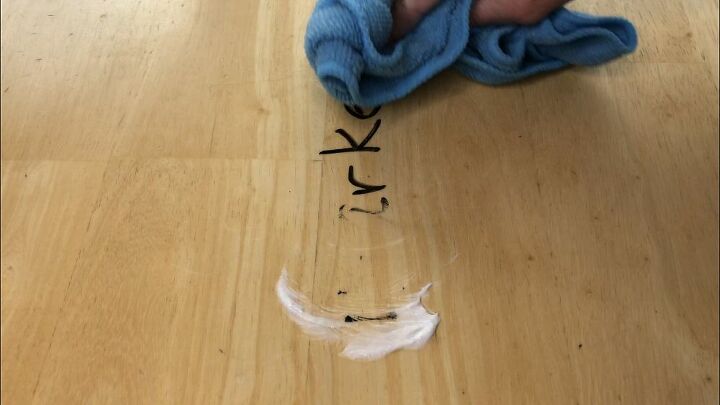
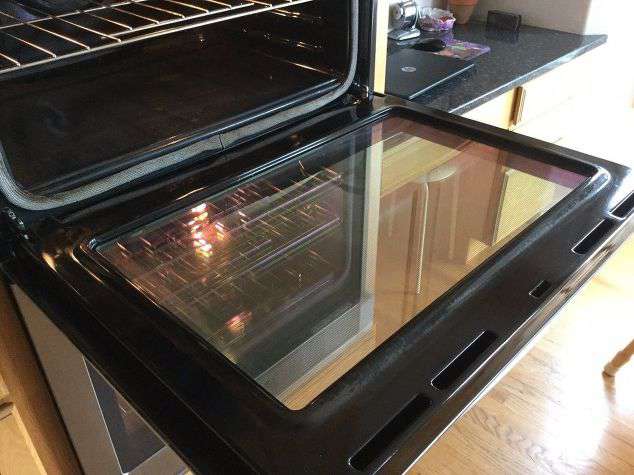
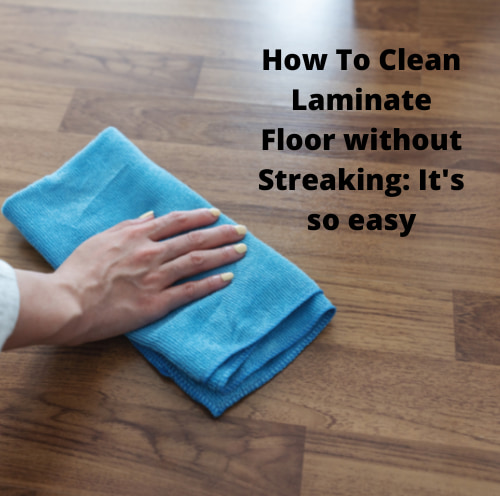
It’s Louise. I lost the directions for the toilet bowl cleaner. It is using citric acid, baking soda and a smidgen of water. Can you resend? Thanks
I love this all-purpose cleaner. Thanks for the idea.
Thank you, I’m glad you like it.